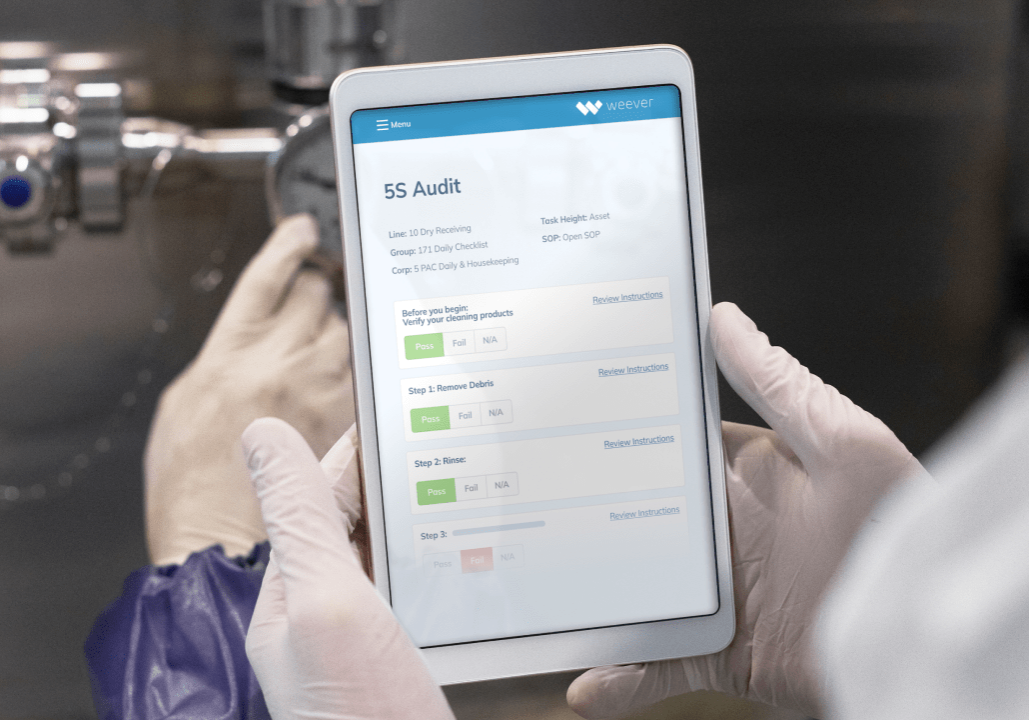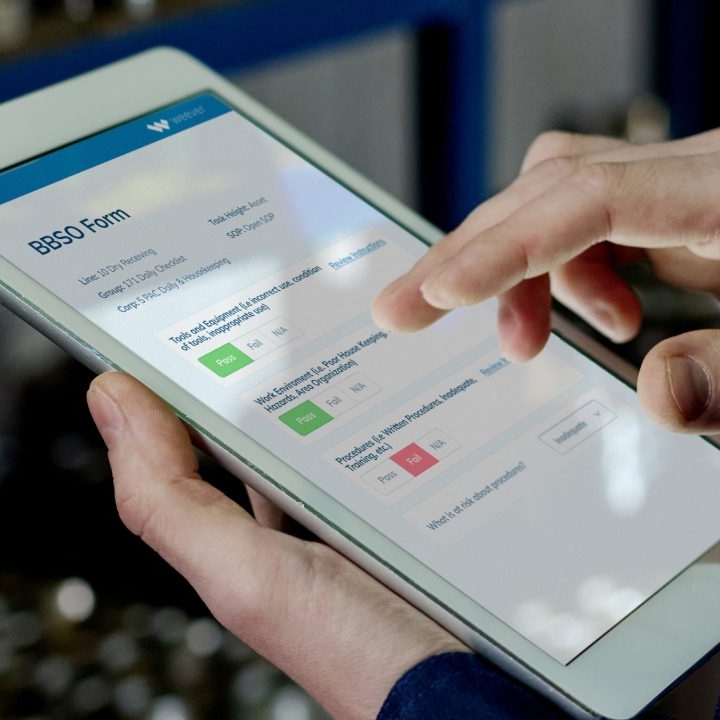How Integrated Work Systems Improve Manufacturing Efficiency
Boost manufacturing efficiency with integrated work systems: streamline workflows, reduce downtime, and enhance productivity.

Efficacy is of the utmost importance in the manufacturing industry, which moves like clockwork. In a highly competitive market, every second counts, and the ability to effectively simplify operations, minimize waste, and increase efficiency can be the deciding factor in whether or not a company can thrive or merely survive. The discovery of methods that can improve efficiency is not merely a goal for manufacturers; rather, it is a must.
The implementation of integrated work systems (IWS) is what comes into play here. The numerous components of the manufacturing process are brought together into a cohesive and interconnected network by these solutions, which are particularly sophisticated. Through the utilization of cutting-edge technology, integrated work systems make it possible to collect data in real-time, maintain seamless communication, and automate workflows, all of which lead to a considerable increase in overall efficiency.
Let’s investigate how integrated work systems have the potential to change manufacturing operations, with a particular emphasis on the role that these systems play in increasing efficiency and reducing downtime. In addition to this, we’ll look into real-world examples from prominent manufacturers who have effectively used these methods to achieve spectacular results.
Understanding Integrated Work Systems in Manufacturing
Integrated work systems are comprehensive solutions that unify various elements of the manufacturing process into a single, streamlined framework. These systems typically include components such as real-time data monitoring, automated workflows, predictive maintenance tools, and advanced analytics. In a manufacturing environment, integrated work systems facilitate seamless communication between different departments, enable precise tracking of production metrics, and support proactive decision-making to address potential issues before they escalate. Weever’s software plays a pivotal role in this integration by providing configurable solutions that enhance connectivity, automate routine tasks, and deliver actionable insights. This enables manufacturers to optimize their operations, reduce downtime, and significantly boost productivity, ultimately leading to more efficient and effective manufacturing processes.
Boosting Manufacturing Efficiency with Integrated Work Systems
Integrated work systems are designed to revolutionize efficiency in the manufacturing sector by streamlining workflows and enhancing communication. These systems create a unified platform where every department, from production to quality control, can collaborate seamlessly.
Streamlined workflows mean that tasks are automated and optimized, reducing manual intervention and the potential for errors. With improved communication channels, information flows effortlessly across the organization, ensuring everyone is on the same page and issues can be addressed promptly. Weever’s configurable solutions enhance these capabilities by providing intuitive tools that simplify task management and facilitate real-time updates, ensuring that all team members are well-informed and aligned with the overall production goals.
Another significant advantage of integrated work systems is the enhancement of data collection and analysis. These systems continuously gather data from various sources within the manufacturing process, enabling detailed and accurate insights into every aspect of production. With real-time monitoring, manufacturers can track performance metrics, identify bottlenecks, and implement quick decision-making processes to address any emerging issues. Weever’s software excels in this domain by offering advanced analytics and reporting features that turn raw data into actionable insights. This empowers manufacturers to make informed decisions rapidly, optimize their operations, and achieve higher levels of efficiency and productivity. The combination of streamlined workflows, enhanced communication, and robust data analysis ensures that integrated work systems are a critical asset in modern manufacturing, driving significant improvements in productivity and operational effectiveness.
Case Study: How Monin, a Syrup Manufacturer, Reduced Downtime with Integrated Work Systems
Reducing downtime is a critical goal for manufacturers aiming to maximize efficiency and productivity. Integrated work systems play a pivotal role in achieving this by enabling predictive maintenance and proactive issue resolution. These systems continuously monitor equipment performance and collect data to predict potential failures before they occur.
This allows maintenance teams to address issues proactively, preventing unexpected breakdowns and minimizing downtime. Automated scheduling and resource management further enhance this process by ensuring that maintenance activities are planned and executed efficiently without disrupting production schedules. Weever’s software provides powerful tools for these functions, helping manufacturers keep their operations running smoothly and efficiently.
A prime example of the effectiveness of integrated work systems in reducing downtime can be seen in the experience of Monin, a 100-year-old syrup manufacturer. Before implementing Weever, Monin struggled with manual workflows and paper-based reporting, leading to significant inefficiencies and delays. By digitizing their Production Readiness Reports and automating KPI reporting, Weever saved Monin 3-4 hours each day. This not only reduced downtime but also allowed managers to focus more on product quality and facility improvements.
The rapid adoption of Weever across all Monin's North American facilities within five months showcased the platform's user-friendly nature and effectiveness. Monin expanded its use of Weever to include OSHA-compliant Safety Incident Reporting, Root Cause Analysis Reporting (RCA), and Corrective and Preventive Actions (CAPAs), further streamlining processes and enhancing efficiency. The substantial time savings and improved compliance have contributed to Monin’s overall productivity and profitability, illustrating the transformative impact of integrated work systems.
The Multitude of Benefits Integrated Work Systems Offer Manufacturers
By streamlining workflows and improving communication, these systems ensure that every aspect of the production process operates smoothly and cohesively. Enhanced data collection and analysis provide valuable insights that drive informed decision-making, while real-time monitoring allows for quick response to potential issues.
Furthermore, predictive maintenance and automated scheduling help minimize downtime, keeping operations running seamlessly. As demonstrated by Monin's experience, the implementation of integrated work systems like Weever's software leads to substantial time savings, increased productivity, and improved compliance.
Manufacturers who embrace integrated work systems will be well-positioned to stay ahead of the competition, achieving higher levels of efficiency and operational excellence. By adopting these solutions, manufacturers can not only boost their productivity but also enhance their agility and resilience in an ever-changing market. Integrated work systems represent a vital investment for the future, ensuring that manufacturers can thrive in a dynamic and demanding industry.
Eager to optimize your manufacturing processes and operational efficiency with integrated work systems?
Eager to optimize your manufacturing processes and operational efficiency with integrated work systems?
Continue Reading
"Having cloud-based forms on devices around the facility makes them so much more accessible, which makes it painless for operators to quickly provide a report."
Johanna Velez, VP Quality Assurance


"Weever is really user friendly and will have a massive positive impact on our operations and training team."
Mel Cadle - Op Ex Lead Process Engineer


"It's shifted our safety culture because now we are much more focused on what we should be looking at."
Kody Crossen, Operations Manager of EHS









